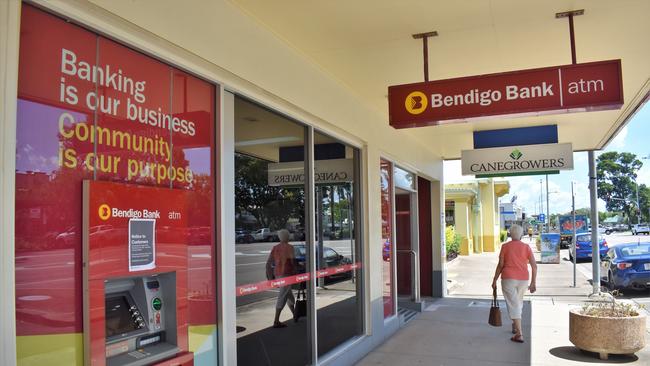Bendigo and Adelaide Bank ‘actively working’ on scope 3 emissions as part of nation’s push to net zero by 2050
The big agribusiness lender says it is now very clearly looking at its customers’ emissions too, as the nation transitions to net zero by 2050.

Bendigo and Adelaide Bank says it is committed to doing its part in the nation’s transition to net zero emissions by 2050, telling shareholders it is “actively working” on the issue of its scope 3 emissions as it faced scrutiny at the company’s annual general meeting.
Chair Jacqueline Hey defended the bank’s progress on its environmental and sustainability targets when fronting shareholders at its annual general meeting on Tuesday.
“We certainly have a number of commitments … in our sustainability report. One is of course, the 50 per cent reductions by 2030. We’re focused on the emissions from our own activities as well as a forward-looking view on emissions from our customers going forward,” Ms Hey said.
“The scope 1 and scope 2 are very clear. Scope 3 is an area that we are working on actively at the moment. It’s a far more involved activity to make sure that we are getting it right and we are delivering against our commitments.”
From the bank’s standpoint, scope 3 emissions are the greenhouse gases produced by the companies it lends to.
The bank would provide updates on the Scope 3 work as it was being done and once it was “very clear” about the actual outcomes it would deliver,” Ms Hey added.
Bendigo Bank has for a number of years refused to lend directly to fossil fuel industries, including coal, oil and natural gas. But the bank is a big lender to agribusiness.
“Whilst the bank doesn’t provide finance directly to (fossil fuel) projects in these sectors, it does recognise that there are individuals and business customers living in communities which may possibly rely on such projects for their livelihood, and their economic sustainability,” Ms Hey said.
“We will continue to provide finance and other services to those individuals in those small businesses in these communities. We recognise we play an important role in supporting communities both today and as we transition to a lower emissions future.”
Chief executive Marnie Baker said farmers had a similar view to the bank on the need to cut emissions.
“We’ve worked alongside those farmers for a lot of years now and I think we’ve got similar views in the sense of how we are all trying to work together to have less reliance on and to reduce the emissions, collectively,” Ms Baker said.
The bank was doing “the right thing” by addressing climate change through action, she added.
“There is absolutely no doubt climate change is having — and will continue to have – far-reaching impacts on the quality of life and financial position of our customers, the communities in which they live, the environment that surrounds them, and the industries in which they earn a livelihood.
“We support the required transition to net zero emissions by 2050 with aligned interim targets, and we are firmly committed to playing our part in this transition.”
In line with this commitment, Bendigo Bank this year reduced its greenhouse emissions by 59 per cent, cut absolute emissions by 20 per cent and achieved carbon neutrality in June 2021 for emissions over financial year 2020.
“As part of our ongoing commitment to strengthening communities, we will continue to work to build climate mitigation and adaptation into our business and to assist our customers, and their communities to build climate resilience into their futures too,” Ms Baker said.
Commenting on the economic outlook, Ms Baker predicted the RBA would lift rates sooner than 2024 as she warned on wage pressures.
“We’ve seen (a worker shortage) right across Australia. We’ve seen it out in the regions, especially in the more rural parts, trying to get skilled labourers … and also when it comes to more professional services.
“So it’s quite competitive there, and we’re seeing that reflect in salaries, which are being pushed up.”
The RBA this month removed its 2024 rate rise guidance, prompting market watchers to pencil in rate rises in 2023, if not sooner.
The worker shortage would not end even with international borders open, Ms Baker warned.
“Opening borders doesn’t automatically solve the problem. We’ve seen a static population for a couple of years now and skills are changing. So there’s still a shortage of those skills.”
As Victoria and NSW enjoy freedom from lockdown, government road maps had provided a degree of certainty for both individuals and businesses, Ms Baker said.
“Once you get that more of that certainty, that confidence will start to build. We’ve seen both consumer and business confidence has lifted and with that will come spending and the flow-on effects.”
Bendigo Bank shares were down 2.1 per cent at $9.18 in a flat market on Tuesday afternoon.




To join the conversation, please log in. Don't have an account? Register
Join the conversation, you are commenting as Logout